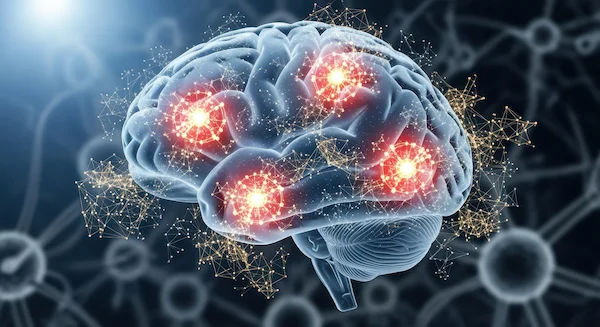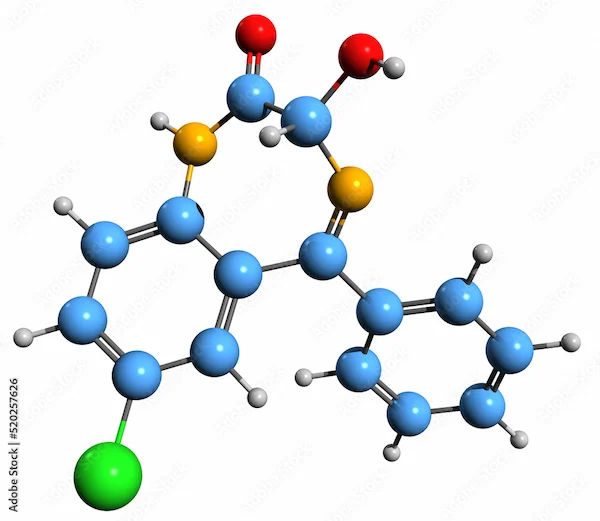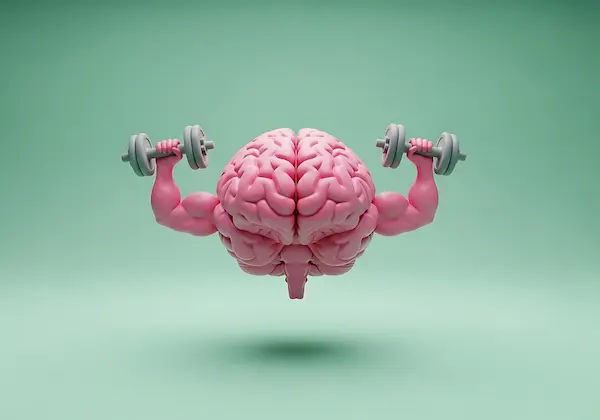Ways To Keep Your Brain Healthy
Discover effective ways to keep your brain healthy, including diet, exercise, mental activities, and lifestyle habits that support memory and cognitive function.


Your brain is the command center for everything you do, thinking, feeling, remembering, and moving. Just like any other part of your body, it thrives with proper care and deteriorates with neglect. The good news? It's never too late or too early to start investing in your brain health. Cognitive decline isn't an inevitable part of aging; by adopting a proactive lifestyle, you can build resilience, enhance your memory, and boost your mental sharpness for years to come. This comprehensive guide will walk you through the top 10 science-backed strategies to nourish and protect your most vital organ. From the food on your plate to the quality of your sleep, we'll explore the practical, everyday choices that can lead to a healthier, happier brain.
Nourish Your Mind: The Best Diet for Brain Health
You truly are what you eat, especially when it comes to your brain. The brain consumes about 20% of the body's calories and nutrients, so fueling it with high-quality food is paramount. A diet rich in antioxidants, healthy fats, vitamins, and minerals provides the building blocks for brain cells and protects them from oxidative stress, the "rust" that can damage tissue over time.
Consult a Top Specialist
Embrace the MIND Diet
A standout in nutritional psychiatry is the MIND diet (Mediterranean-DASH Intervention for Neurodegenerative Delay). It combines elements of the heart-healthy Mediterranean and DASH diets, specifically targeting cognitive function. Studies have shown it can potentially reduce the risk of Alzheimer's disease by up to 53% for those who follow it closely. The diet emphasizes plant-based foods, whole grains, fish, and poultry, while limiting red meat, sweets, and fried foods.
Key Brain-Boosting Nutrients and Where to Find Them
Omega-3 Fatty Acids: Crucial for building brain and nerve cells. They are essential for learning and memory. Find them in fatty fish (salmon, tuna, sardines), walnuts, and chia seeds.
Antioxidants (Flavonoids & Vitamin E): These compounds combat oxidative stress. Berries (blueberries are a superstar), dark chocolate, leafy greens (kale, spinach), and nuts are excellent sources.
B Vitamins: Vitamins B6, B12, and folate help slow brain atrophy and are vital for producing brain chemicals. Find them in legumes, citrus, eggs, and lean meats.
Foods to Limit for Optimal Cognitive Function
Just as some foods help, others can harm. Highly processed foods, sugary drinks, and refined carbs can lead to inflammation and oxidative stress, negatively impacting brain health. Excessive alcohol consumption is also a known neurotoxin that can disrupt brain communication and cause long-term damage.
Get Moving: How Physical Exercise Protects Your Brain
If you want a simple way to improve memory and focus naturally, look no further than your running shoes. Physical activity is one of the most effective things you can do for your brain.
The Magic of Aerobic Exercise
Aerobic exercise gets your heart pumping, which increases blood flow to the brain. This delivers the oxygen and nutrients it needs to perform at its best. But the benefits go deeper: exercise stimulates the release of chemicals like Brain-Derived Neurotrophic Factor (BDNF), often called "Miracle-Gro for the brain." BDNF supports the survival of existing neurons and encourages the growth of new ones, a process known as neurogenesis, particularly in the hippocampus—the center for memory and learning. Aim for at least 150 minutes of moderate-intensity exercise per week, like brisk walking, swimming, or cycling.
Don't Skip Strength Training
While cardio gets most of the attention, resistance training is also vital. Studies show that lifting weights or doing bodyweight exercises like squats and push-ups can improve executive function, including the ability to plan, organize, and multitask. It also helps manage blood sugar levels, reducing the risk of diabetes a known risk factor for cognitive decline.
Prioritize Restorative Sleep: The Brain's Cleansing Cycle
Never underestimate the power of a good night's sleep. It's not a passive state but a period of intense activity where your brain cleans house and solidifies memories.
How Sleep Solidifies Memories
During sleep, especially deep sleep, your brain processes the day's events, transferring information from the short-term memory hub (hippocampus) to the long-term storage cortex. This process, called memory consolidation, is why pulling an all-nighter before an exam is less effective than getting a full night's rest.
Conclusion
Safeguarding your brain health is a multifaceted, lifelong journey, not a single destination. The strategies outlined from nourishing your body with brain-boosting foods and breaking a sweat to prioritizing sleep and managing stress are all powerful pieces of the same puzzle. The most encouraging fact is that these are largely within your control. You don't need a radical overhaul; small, consistent changes can yield significant cumulative benefits for your cognitive function and long-term well-being. Start by integrating one or two new habits this week, and gradually build from there. Your brain is your most precious asset; investing in its health is the best investment you can make for a vibrant, sharp, and fulfilling life at every age.
Frequently Asked Questions (FAQs)
Below are few FAQs,
1. What are the best brain exercises to improve memory?
A. While puzzles are good, the best brain exercises are novel and complex. Try learning a new language, musical instrument, or even a new dance. This challenges your brain to form new neural connections, which is more beneficial than repeating familiar puzzles.
2. Can you reverse damage to the brain from poor lifestyle choices?
A. The brain has a remarkable ability known as neuroplasticity, meaning it can form new neural pathways throughout life. While some damage may be permanent, adopting a healthy brain lifestyle can often lead to significant recovery, improved function, and better resilience against future decline.
3. How does socializing keep my brain healthy?
A. Social interaction is a complex cognitive workout. It engages multiple brain functions simultaneously, memory, attention, emotion regulation, and auditory processing. Strong social connections fight feelings of loneliness and depression, which are known risk factors for cognitive decline.
4. At what age should I start worrying about my brain health?
A. It's never too early to start. The choices you make in your 20s, 30s, and 40s build your "cognitive reserve," which helps your brain better withstand the changes that come with aging. Brain health is a lifelong pursuit.
5. When should I see a doctor about memory problems?
A. It's normal to occasionally forget names or misplace keys. However, you should consult a doctor if memory loss is disrupting your daily life—like getting lost in familiar places, repeatedly asking the same questions, or having trouble following recipes you've used for years. If symptoms persist beyond two weeks, consult a doctor online with Apollo24|7 for further evaluation.
Consult a Top Specialist
Consult a Top Specialist

Dr Vinay Kumar A V
Nephrologist
8 Years • MBBS, MD - General Medicine, DM - Nephrology
Bilaspur
Apollo Hospitals Seepat Road, Bilaspur
Dr. Indrajit Das
General Physician/ Internal Medicine Specialist
4 Years • "MD (Internal medicine) : Gauhati Medical College and Hospital, Guwahati (2018-2021) MD (Pathology) : Gauhati Medical College and Hospital, Guwahati (2012-2015) MBBS (Bachelor of Medicine, Bachelor of Surgery) : Silchar Medical College, Assam (2003-2008) "
Guwahati
Apollo Excelcare Hospital, Guwahati

Dr. J M Dua
General Physician/ Internal Medicine Specialist
43 Years • MBBS, MD
Delhi
Apollo Hospitals Indraprastha, Delhi

Dr. Hariprasath J
General Physician/ Internal Medicine Specialist
19 Years • MD (Gen Med), FCCP, Dip (Diabetology, UK)
Chennai
Apollo First Med Hospitals P H Road, Chennai
(225+ Patients)

Dr. Senthilmuthu K
General Physician/ Internal Medicine Specialist
6 Years • MBBS, MD
Karur
Apollo Hospitals Allwyn Nagar, Karur
(100+ Patients)



